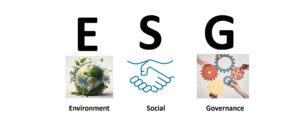
Organizational growth & effective performance can only be achieved when individuals are continuously appraised and evaluated through a proper Performance Management System. Generally, HR managers play the role for creating good performance management practice. However, line managers have taken it as a tick mark activity in general and most of the cases line managers from different functions does not own the performance management system. BDHRM has conducted a survey on Performance Management Practices in Bangladesh and the outcome was not satisfactory. More than 300 participants was participated from different industry of Bangladesh whose minimum Job Experience is more than 2.5 years and only 38% of total population is happy with Performance Management system of the organization they are working for. Organizations are taking different initiatives like forced ranking, technology and continuous feedback but the business result is less compared the energy organizations are putting.
By analyzing the survey feedback, BDHRM has identified 4 truths regarding Performance Management Practices in Bangladesh:
TRUTH #1: Most of the employees are not happy with Performance Management System
Only 38% employees are happy with existing performance management system. Satisfaction level is maximum on International NGO where Local NGO has minimum satisfaction level with existing performance management system. As per survey, 82% employee from International NGOs are happy with performance management system, 38% MNC employees, 25% Local Company employees and only 7% Local NGO employees are happy with their performance management system.
TRUTH #2: All Organizations do not have Performance Management System
23% organizations do not have performance management system. But the most alarming news is that 13% participants does not know that either they have any performance management system in their organization. 63% organizations have performance management system; which can be effective or cannot as we did not conduct any further survey on either performance management system is effective. Here, INGO is also leader as 100% survey participants rom INGO has confirmed that they have a performance management system.
TRUTH #3: All Managers do not discuss during yearly Appraisal
No performance appraisal discussion is happening in 38% cases where 62% employees are getting an opportunity to discuss with reporting manager. 100% employees from International NGOs are getting the opportunity to be part of Appraisal discussion. 59% employees from Local Company, 58% from MNC and 31% employees from Local NGO are getting an opportunity to discuss on performance issues during yearly performance assessment.
TRUTH #4: Performance Appraisal does not influence on Individual training & development needs in most of the cases
Performance appraisals can identify a company’s top performers to ensure the most productive delivery as well as it is a great tool to identity Performance Gap. But in most of the cases performance measurement is used in only reward management & not in identifying training needs to develop individual’s performance. Only 26% participants confirmed that they have received training due to Low Performance rating on a particular area. And the percentages are 52% for INGO, 39% for MNC, 12% for local company & 0% for local NGO. On further cross checking it was observed that some organizations are initiating Performance Improvement Plan (PIP) for low score on performance appraisal.
HOW CAN COMPANIES MOVE FORWARD WITH GOOD PERFORMANCE MANAGEMENT PRACTICES?
There is no instant solution to overcome the situation however some initiatives can be taken to build a workforce for the future:
- Ensuring Performance Appraisal Discussion between Reporting Manager & Employee
- Train the managers on providing regular feedback
- TNA to be done basis Performance Measurement, if required individual training plan needs to be developed
- To let employees know their unique skills to future business needs and what is expected from them.
We will love to publish your own article. It will be helpful to others. Click here to sponsor an article.
Visit our YouTube Channel
